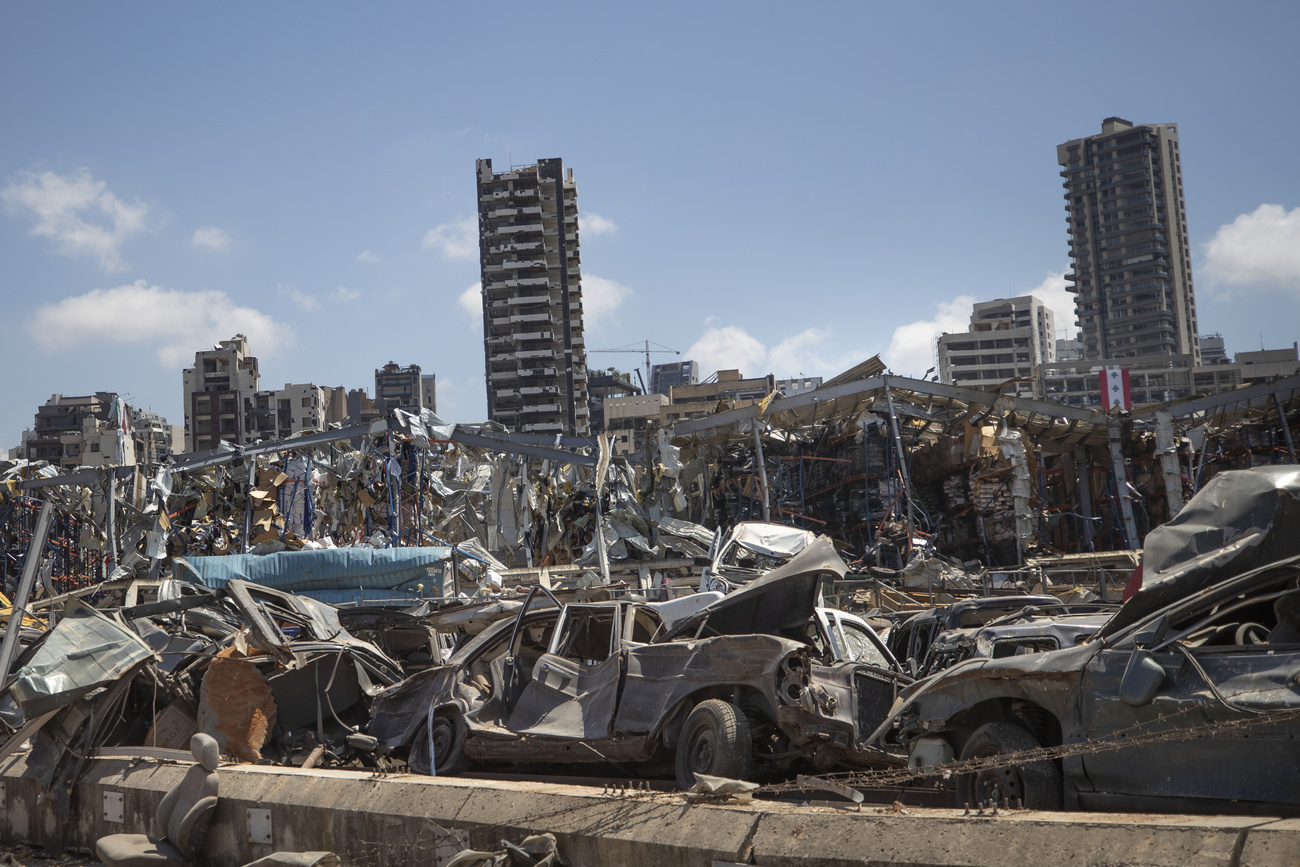
Swiss donated CHF7.6 million for victims of Beirut disaster

One year after a devastating explosion in Beirut, the humanitarian charity Swiss Solidarity has given CHF6 million ($6.6 million) to relief projects. In total, the organisation received CHF7.6 million in donations.
On August 4, 2020, ammonium nitrate which had been stored unsafely for years exploded in a port warehouse, killing more than 200 people, injuring more than 6,000 and destroying swathes of Lebanon’s capital. Nearly 300,000 people were left homeless.

More
Switzerland mobilises efforts to help Lebanon
Five partner organisations immediately launched emergency relief projects, Swiss Solidarity said in a statementExternal link on Tuesday. They distributed food, water and other essential goods, cared for injured people and carried out urgent repairs to badly damaged houses.
In a second stage, partner organisations focused on more sustainable aid such as supporting the rehabilitation of houses, the reconstruction of livelihoods, assuring food security, protection and education, the organisation said.
Since then, assistance has been extended to households, families and individuals who are in a vulnerable situation not only due to the explosion but also because of the combination of different crises currently occurring in Lebanon, such as the Covid-19 pandemic and high levels of inflation.
“Even one year after the disaster, the needs of the people in Beirut remain considerable,” Swiss Solidarity said.
Poverty line
In the coming months the remaining CHF1 million will be allocated to other projects addressing the most urgent needs of the Lebanese population and providing support in the neighbourhoods most affected by the explosion. Eight of the 16 projects co-financed by Swiss Solidarity have already been completed.
The UN estimates that around 55% of the population lives below the poverty line. In addition, there are about 1.5 million refugees living in Lebanon – out of a population of almost seven million – of whom an estimated 90% also living below the poverty line.

More
Swiss Humanitarian Aid ends rapid-response mission in Beirut

In compliance with the JTI standards
More: SWI swissinfo.ch certified by the Journalism Trust Initiative



























You can find an overview of ongoing debates with our journalists here . Please join us!
If you want to start a conversation about a topic raised in this article or want to report factual errors, email us at english@swissinfo.ch.